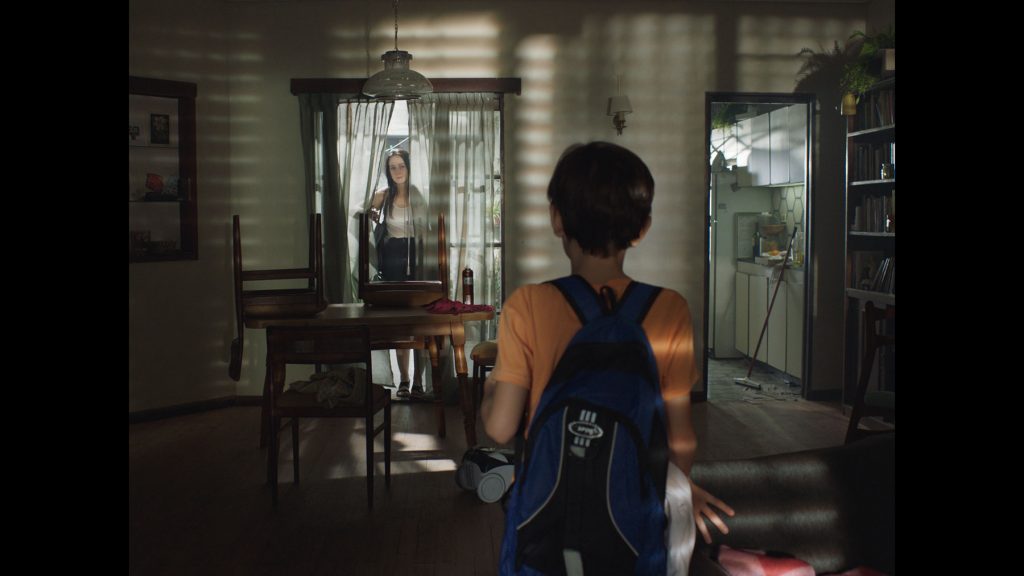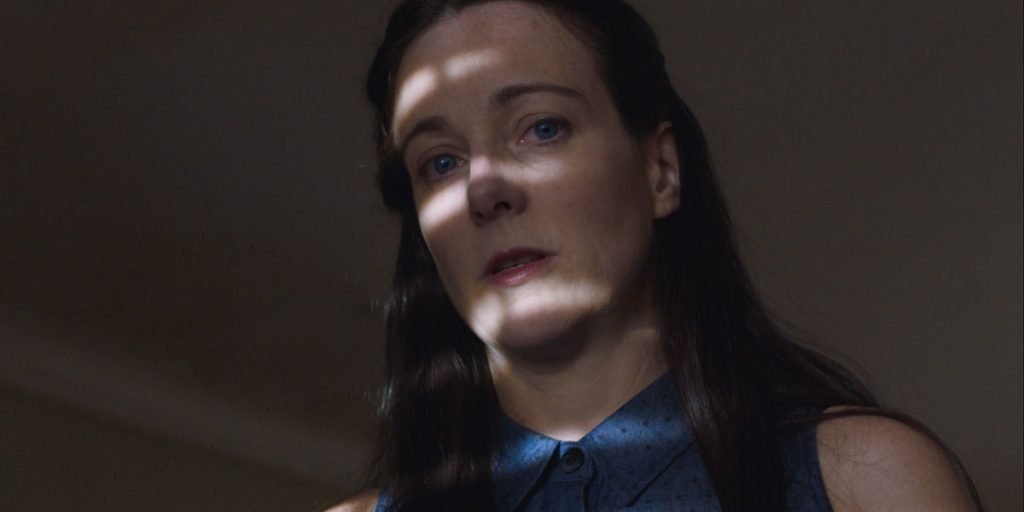A Common Crime (Un Crimen Común) explores the evils of contemporary Argentina through the eyes of a guilt-ridden middle-class woman.
A Common Crime (Un Crimen común) is an impressive film. On paper, it’s the story of a middle-class sociology lecturer haunted by the ghost of her housekeeper’s son, carrying the guilt of the knowledge that she could have prevented him from ever becoming a ghost, if only she had responded to his cry for help. But Francisco Márquez (The Long Night of Francisco Sanctis)’s latest thriller is so much more than that: in fact, though it may look and feel like one, it’s not even a thriller at all. It was the police who murdered Kevin (Eliot Otazo), a fifteen-year-old boy whose only fault was having been born on the wrong side of society – the side of the poor, and therefore guilty, dangerous and expendable, at least in the eyes of society. As the director explains, “to be poor in Argentina means to be already a suspect”: last year alone, one poor person was killed every nineteen hours by the Argentine State, and half of them were under 25 years old.
By choosing to have A Common Crime revolve around a middle-class, sympathetic woman, Márquez sets the stage for a tragedy that consumes itself on two levels: on the surface, our compelling protagonist, Cecilia (Elisa Carricajo), chooses not to save Kevin when he desperately knocks on her door, moments before he’s murdered, and is then crippled by guilt, hearing the boy in every suspicious noise in her house and slowly falling prey to her own emotions. But there’s another, much deeper level in this tense, claustrophobic drama: if Cecilia is torn and distressed, so is the country she lives in. It’s a grim, divided system that Márquez presents us with, and A Common Crime has all the feel of a country that is torn into two very distinct realities, both made of flawed human beings who are doing their best to survive in a broken society – the only real, tangible evil in the film.
And it’s in its humanity that A Common Crime shines, its raw emotion present in every glance of its compelling protagonist, exceptionally played by Elisa Carricajo in a career-defining performance that, alone, ensures the film’s success. Effective sound design makes its stunning scenes ethereal and eerie, and the slow-paced action gives us a sense of a place we can almost feel, depicting a reality that slowly becomes familiar, right before it traps us in. Anger, fear and pain can be perceived throughout the film, but they’re not the only emotions Márquez chooses to convey. There’s also compassion in a A Common Crime, as the empathy we cannot help but feel for an imperfect, but well-meaning, protagonist cleverly shows us that there’s humanity in the very same people it condemns, and asks us the most uncomfortable question of all: if it had been us, what would we have done?

A Common Crime is a deeply meaningful drama with very little action, and paying attention to its many details may prove quite difficult, at first. If you stick with it (and you absolutely should), you’ll find yourself captivated by its empathetic protagonist, and mesmerized by its tangible world, realising that it eerily and accurately depicts the evils of a society that is not entirely unfamiliar, regardless of where you live. Tragedy unfolds and sins are washed away in Márquez’s drama, yet the world carries on, just like it did at the very beginning – only, it’s a little bleaker. The tension may have gone, but the anger and the pain have never been more present, making A Common Crime an essential, timely watch.
A Common Crime (Un Crimen Común) was screened at the BFI London Film Festival on 13 October 2020, and was released in Virtual Cinemas and VOD in the U.K. on 9th April 2021.

